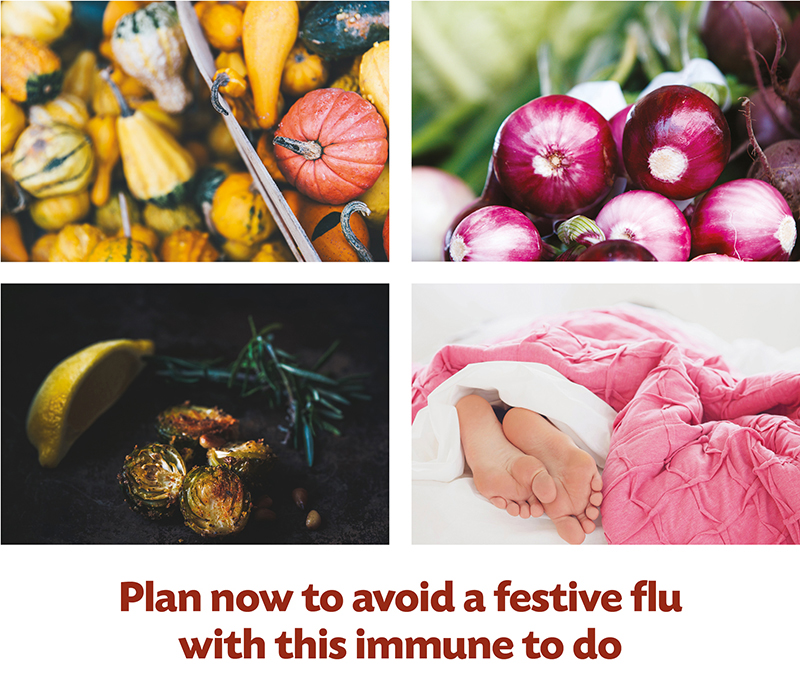Flu season is once again upon us. Good news is, you don’t have to douse yourself in anti-bacterial gel in order to protect your body against the winter germs that are making the rounds around the office. With a few simple lifestyle changes, you can give your immune system the boost it needs to fight off everything from the common cold to influenzas.


Feed Your Immune System Fill your diet with plenty of whole grains, fresh fruits and vegetables. Avoid foods high in saturated fat, such as processed foods. To help set you on the right track, here are three of the best immune-boosting foods the season has to offer.
Butternut Squash This autumn/winter vegetable is a great source of vitamin C and vitamin E, the two major vitamins that support our body’s immune system. As an added benefit, a cup of cubed butternut squash also provides 582 mg of potassium – that’s more than the amount available in a banana. Butternut squash is great cooked up in stews and curries or tossed in a salad.
Onions Adding flavour to everything from soups to pasta, onions are a year-round kitchen staple. You may be surprised to hear that this unassuming vegetable is actually very healthy. Onions are low in calories and high in vitamin C, making it the perfect veggie to boost your immune system when you are counting the calories. Slice, dice and add to any dish for added flavour.
Cabbage A close cousin to other cold-weather veggies like cauliflower, Brussels sprouts, kale, and broccoli, cabbage is packed full of immune system boosting vitamins and minerals, including vitamin C. The nutritional benefits of cabbage are most pronounced when raw, so try slicing up some leaves and tossing them in a salad or stir-fry.
Avoid Alcohol This one might get a little trickier to stick to as the holidays approach, but moderating your alcohol consumption will do wonders for your immune system. Excessive alcohol consumption can actually suppress some parts of your immune system, leaving you open to illness and making recovery more difficult.
Sleep Sleep is directly linked to good health, lower body weight, reduced symptoms of depression, reduced stress and a healthier diet. While it’s important that you aim to get between the recommended 7 – 8 hours each night, it’s quality not quantity that really matters when it comes to our sleep. Establish a night-time routine that will help you wind down and drift off into a restful sleep. An hour before bed, go on an electrical detox and do a relaxing activity such as reading a book, listening to music or taking a bath.
Exercise Regularly Regular exercise can improve sleep quality, encourage a healthy diet and reduce stress and symptoms of depression. Aim for at least 30 minutes of moderate exercise each day. That’s not to say that you have to sweat it out at the gym seven days a week, taking a brisk walk is a great way to get your body moving.
Written by Samantha Allaker

